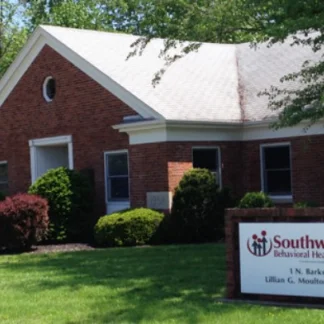Evansville Treatment Center
Evansville Treatment Center is a private rehab located in Evansville, Indiana. E...
Southwestern Behavioral Healthcare - Youth Day Treatment offers psychiatric partial hospitalization treatment for children struggling with psychiatric disorders. Southwestern Behavioral Healthcare - Youth Day Treatment is located in Evansville, IN.
Southwestern Behavioral Healthcare – Youth Day Treatment offers help and support from dedicated staff to meet all the emotional, social, academic and behavioral needs of children from kindergarten to sixth grade who are dealing with some kind of emotional disorder. The program consists of individual and group skills training, therapeutic education, psychiatric or psychological services if needed and also family therapy to help the children through the recovery process.
Contact us for more information: (812) 426-2499

Connect with Southwestern Behavioral Healthcare - Youth Day Treatment by calling their admissions team directly.
(812) 426-2499 Website Get DirectionsResearch clearly demonstrates that recovery is far more successful and sustainable when loved ones like family members participate in rehab and substance abuse treatment. Genetic factors may be at play when it comes to drug and alcohol addiction, as well as mental health issues. Family dynamics often play a critical role in addiction triggers, and if properly educated, family members can be a strong source of support when it comes to rehabilitation.
Group therapy is any therapeutic work that happens in a group (not one-on-one). There are a number of different group therapy modalities, including support groups, experiential therapy, psycho-education, and more. Group therapy involves treatment as well as processing interaction between group members.
In individual therapy, a patient meets one-on-one with a trained psychologist or counselor. Therapy is a pivotal part of effective substance abuse treatment, as it often covers root causes of addiction, including challenges faced by the patient in their social, family, and work/school life.
Life skills trainings involve all the skills a person must have in order to function successfully in the world. These include time management, career guidance, money management, and effective communication. Truly successful addiction recovery is based on the ability to not only live substance-free, but to thrive. Life skills teaches the practical necessities of functioning in society, which sets clients up for success in life, and therefore sobriety.
Group therapy is any therapeutic work that happens in a group (not one-on-one). There are a number of different group therapy modalities, including support groups, experiential therapy, psycho-education, and more. Group therapy involves treatment as well as processing interaction between group members.
In individual therapy, a patient meets one-on-one with a trained psychologist or counselor. Therapy is a pivotal part of effective substance abuse treatment, as it often covers root causes of addiction, including challenges faced by the patient in their social, family, and work/school life.
Life skills trainings involve all the skills a person must have in order to function successfully in the world. These include time management, career guidance, money management, and effective communication. Truly successful addiction recovery is based on the ability to not only live substance-free, but to thrive. Life skills teaches the practical necessities of functioning in society, which sets clients up for success in life, and therefore sobriety.
In individual therapy, a patient meets one-on-one with a trained psychologist or counselor. Therapy is a pivotal part of effective substance abuse treatment, as it often covers root causes of addiction, including challenges faced by the patient in their social, family, and work/school life.
Life skills trainings involve all the skills a person must have in order to function successfully in the world. These include time management, career guidance, money management, and effective communication. Truly successful addiction recovery is based on the ability to not only live substance-free, but to thrive. Life skills teaches the practical necessities of functioning in society, which sets clients up for success in life, and therefore sobriety.
Life skills trainings involve all the skills a person must have in order to function successfully in the world. These include time management, career guidance, money management, and effective communication. Truly successful addiction recovery is based on the ability to not only live substance-free, but to thrive. Life skills teaches the practical necessities of functioning in society, which sets clients up for success in life, and therefore sobriety.
Evansville Treatment Center is a private rehab located in Evansville, Indiana. E...
Southwestern Behavioral Healthcare- Evansville offers alcohol and drug addiction...
AA – Alcoholics Anonymous is a private rehab located in Evansville, Indiana. AA ...
Hillcrest Youth Services is a not-for-profit organization that offers unique and...